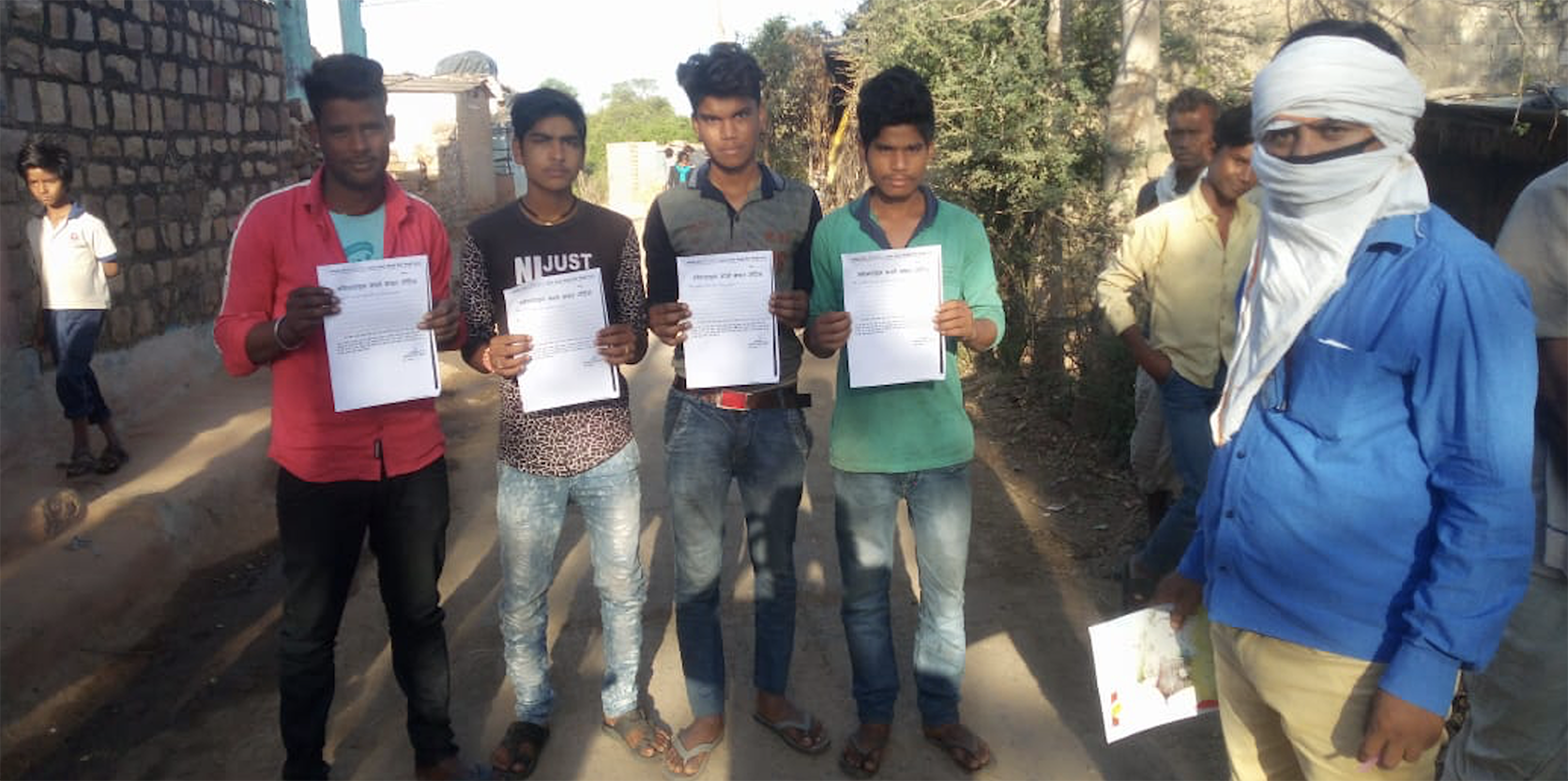Out of work, migrant workers returning to their villages across the country are facing more than the threat of hunger, infection and ostracisation
On 22 March when ‘Janata Curfew’ was announced, daily wage worker Puran became worried about his family’s health. He had heard that the curfew had been announced due to a pandemic, which after claiming many lives across the world was now infecting people in India. The very next day the contractor he was working for told him to leave for his village of Kunwarpur in Madhya Pradesh’s Shivpuri district, as the situation was worsening. On 24 March, he along with five members of his family boarded a truck carrying other labourers of Shivpuri, all of whom were heading home.
When the 21- day lockdown was announced by Prime Minister Narendra Modi to prevent the spread of Covid-19, shops, transport and factories shut down, and only the production and supply of essential services was allowed. This hit migrant workers the most.
Puran is from the Sahariya tribe which is classified under the Particularly Vulnerable Tribal Groups (PVGT), which is protected under special provisions of the law. But unfortunately, their condition remains precarious. Lack of income with its looming threat of hunger remain their primary concerns.
Puran returned to his village along with his wife, Rambati, his elder son and daughter-in-law (Maherdra and Kranti), youngest son Mastram and daughter Sombati. Except the young couple, who stay in a cemented room made under government schemes, the family stays in a small hut made of cowdung with no partitions or separate rooms.
They do have some basic knowledge about the disease and are aware of the way in which it transmits through human contact. “Hum toh kachu nahi jane sahab, haman te kahe dayi ke door door raho aur sabun se hath dhou, wo kar rahe hai, je kitadun hatan se andar ghus jate” (We don’t know anything we have been told to maintain distance from each other and to wash hands regularly as this virus enters through our hands).
Only 12 families of the Sahariya tribe live in Kunwarpur, one kilometre from the main village. Despite having toilets built in their homes, very few use them. “Inme koi jate hi naiyya, tai gandi padi hai” (Nobody uses these toilets, therefore they are dirty), says Rambati. In this scenario, maintenance of hygiene remains a big question.
Around 22 labourers who used to work in a potato farm in Agra have also returned to the village, and are now in limbo with no livelihood. “Everyone is telling us not to go out, and we are sitting idle in our homes, but for how long? We are labourers: unless we work, we will not be able to eat. I have not even smoked bidi for one week now,” says Puran.
Kishan Singh, the contractor for whom Puran and his family worked, did not pay them. They came back without even receiving their wage. “He is a good man but he has not paid us. We were lucky that we could flee, many are still stranded. We have food for the time being but we will not be able to sustain for long.”
The district of Shivpuri is witnessing many labourers coming back to their respective villages on a daily basis. The local administration ha s decided to let the migrant workers return to their villages, instead of stopping them in the city. “If a labourer has come back walking for days, it is very hard to stop them here. They go to their respective villages. Now we are ensuring that proper rules and guidelines will be followed” said an official.
Just 3 km away, in another village called Sikrawada, four friends in their early 20s returned from Pali, Rajasthan on 30 March. Vinod Jatav, 22, used to work in a factory making water packs. In a state of panic due to unavailability of work as factories had been shut since 22 March, he decided to go home.
He “I was there till 29 March but since everyone was going home I too decided to return. Therefore, I started walking with my friends. It took us two days to complete the journey and we arrived here on 30 March.”
Vinod’s family of eight members lives in a two-room house. Vinod’s family doesn’t use soap to wash hands; instead, they use ash and soil. Despite having toilets, some of his family members prefer defecating in open spaces. “My parents and brother go out to defecate but I am used to toilets. I don’t go out,” Vinod says.
Dinesh Rawat, speaking on behalf of his wife Mamta who is the village head of Kunwarpur says, “We have instructed the people to wash their hands and not to go out. We are taking the utmost care in our village. Almost everyone has ration cards and we are providing foodgrains as directed by the government. We will also ensure food for those who do not have ration cards.”
The district collector had asked sarpanches to maintain a directory of the migrant labourers who have returned to the village and asked village heads and secretaries to ensure that they do not run out of food and follow the proper guidelines.
So far, the city nearby (Gwalior) has recorded two Covid-19 cases and all the family members and patients have been quarantined. In this situation, these migrant labourers pose as well as face the very real threat of spread as many live in small houses which make social distancing difficult.
Another aspect of the virus is the fear of social boycott. Many labourers whom we talked to pointedly mentioned that they were not ill. They fear that, if they fall ill, people will ostracise them and their families. A better understanding of the disease is therefore the need of the hour. Confusion regarding the spread and rumours of any kind can greatly exacerbate the situation.





